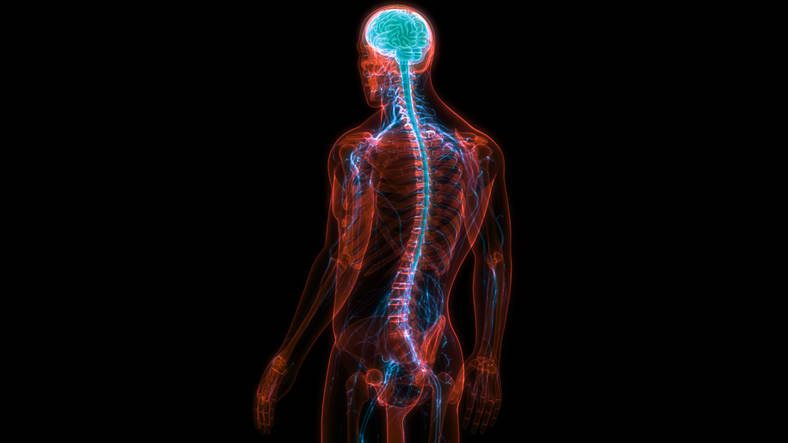Could pregnancy brain be a superpower?

[4 MIN READ]
In this article:
-
New research indicates that changes in a mother’s brain during pregnancy may be more helpful to her and her baby than was previously understood.
-
“Baby brain” is an inaccurate stereotype that detracts from the extraordinary changes that occur in a mother’s brain during pregnancy.
-
Mothers can feel confident that their brains are working to support them and their babies and that asking for mental health care when they need it is completely normal and okay.
Could pregnancy brain be a superpower?
The term "baby brain" gets tossed around frequently. It’s often used as a catchall for forgetfulness, clumsiness and distraction seen in expectant and new mothers.
New research suggests that mothers’ brains do indeed change during and after pregnancy, and those changes may be part of an extraordinary adaptation that prepares them to become the caregivers their babies need.
To learn more, we spoke with Veronica Zantop, M.D., medical director of the Swedish Center for Perinatal Bonding and Support.
Hormonal changes prepare the brain for motherhood
During pregnancy, a mother’s body goes through profound physical changes, including increases in plasma volume, immune regulation, metabolic rate and oxygen consumption. These changes are initiated by hormones, which also drive a reorganization of the central nervous system, making pregnancy a time of exceptional brain adaptation.
Hormones like oxytocin and progesterone enhance the brain's multitasking abilities, improve emotional regulation and foster stronger social connections. These changes are part of a carefully orchestrated process designed by evolution to prepare women for the complex demands of motherhood.
“You do not need to be a birthing parent to develop parental behaviors — adoptive parents, fathers and grandparents all experience these feelings, too,” says Dr. Zantop. “But we do know that the hormonal changes experienced during pregnancy have an impact on a mother’s brain.”
New study detects precise pregnancy brain changes
A 2024 study adds more depth to our understanding of pregnancy brain changes. Researchers conducted MRI scans — 26 total — to document one woman’s brain throughout her pregnancy and into postpartum. The study participant, a 38-year-old neuroscientist, reported that she did not experience any of the cognitive symptoms associated with the “baby brain” stereotype, such as brain fog or forgetfulness.
However, the scans revealed an enhanced efficiency in the white matter fibers that help transmit signals between brain cells. By the ninth week of pregnancy, gray matter volume (GMV) — where sensation, perception, voluntary movement, learning, speech and cognition are processed — decreased, while white matter microstructure and cerebrospinal fluid increased.
These changes reflect a fine-tuning of neural circuits that researchers believe allow the brain to become more specialized, optimizing the flow of information and corresponding to behaviors that support bonding and attachment between mothers and their babies.
“It appears that changes occur in the brain regions involved in social cognition — the parts of the brain that have the strongest response when mothers look at pictures of their infants,” says Dr. Zantop. “These brain regions involved allow mothers to accurately perceive, interpret and respond to their infant’s signals.”
Baby brain stereotype gets mothers’ brains wrong
In 2022, British researchers published a different study that looked at “baby brain” as a negative stereotype impacting pregnant and postpartum women. They found that non-pregnant people associated pregnant women with traits of warmth and low competence, stereotypes that may contribute to discrimination and stigma.
Pregnant women who have concerns about cognitive issues and brain fog should be taken seriously, but the “baby brain” stereotype of forgetfulness and disorganization overlooks the profound changes that happen to a mother’s brain during pregnancy.
“Pregnancy brain changes are a multifaceted phenomenon with challenges and strengths that can empower expectant mothers,” says Dr. Zantop. “By reframing the conversation, society can play a crucial role in supporting mothers in embracing their evolving identities as they prepare for parenthood.”
Protect your mental health during pregnancy and postpartum
While giving birth and becoming a parent can be a wonderfully transformative experience, one mother in five experiences mental health issues during pregnancy. New mothers, whose nervous and hormonal systems are strained by pregnancy, childbirth and the demands of caring for a baby, may experience anxiety, depression or both.
Dr. Zantop encourages new and expectant mothers to reach out for help if they are experiencing mental health struggles like lasting sadness, uncontrollable worry and postpartum depression.
“Research shows that women are at higher risk for mood and anxiety symptoms postpartum,” she says. “But anxiety and depression are treatable with either medicine or non-medical interventions, or a combination of both. Many mothers benefit from support groups and individual or group talk therapy and learning actionable ways to care for yourself benefits the entire family.”
“When dealing with postpartum mental health symptoms, it’s a good idea to start the conversation with your women’s health care provider,” she adds.
Connect to a maternal support system at Swedish
Pregnancy and parenting should not be a solo journey. At Providence Swedish, we have resources and support for mothers in the moments when they need help the most.
The Swedish Center for Perinatal Bonding and Support was established to help mothers feel comfortable and confident in their new role. The center provides resources for managing anxiety, depression and mood disorders during pregnancy and in the months and years after.
The center’s services include a day program designed to help new mothers bond with their babies and connect with other moms experiencing similar emotions. Mothers can also get counseling to help treat mood and anxiety disorders, and other family members can meet with the center’s providers for guidance, too.
Learn more and find a physician or advanced practice clinician (APC)
Brain changes are a natural part of pregnancy, and mothers can feel confident that their brains will adapt in ways that support them before childbirth and beyond — but it is also common for mothers to experience mental health challenges associated with pregnancy and postpartum. Support is available. Contact the Swedish Center for Perinatal Bonding and Support if you are pregnant or postpartum and struggling with your mental health.
For more information about comprehensive behavioral healthcare at Swedish, contact Swedish Behavioral Health and Wellbeing.
Whether you require an in-person visit or want to consult a doctor virtually, you have options. Contact Swedish Primary Care to schedule an appointment with a primary care physician. You can also connect virtually with your doctor to review your symptoms, provide instruction and follow up as needed. And with Swedish ExpressCare Virtual, you can receive treatment in minutes for common conditions such as colds, flu, urinary tract infections and more. You can use our provider directory to find a specialist or primary care physician near you.
Information for patients and visitors
Related resources
Did the baby blues arrive with your newborn?
Not just the baby blues. Swedish experts on postpartum anxiety and depression
Support for mental wellness and commitment to ending mental health stigmas
This information is not intended as a substitute for professional medical care. Always follow your healthcare professional's instructions.
Providence Swedish experts in the media
Follow us on Facebook, Instagram and X.


